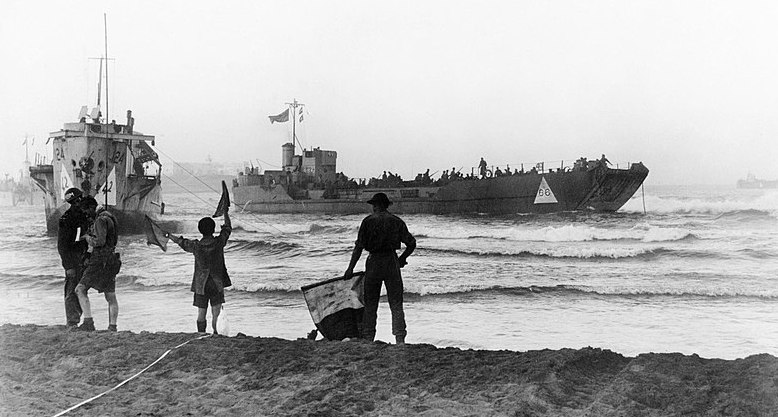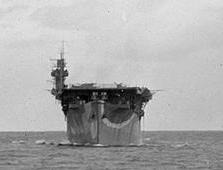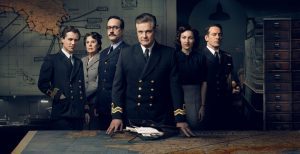
Netflix on Operation Mincemeat: Did They Get It Right?
Excerpted from, “Operation Mincemeat” first published by the Hillsdale College Churchill Project. For the original text please click here.
Update: Whose Body?

The body used to deceive the Germans may not have been that of Glyndwr Michael but of Royal Navy sailor John Melville. Admiral Lord West raised this likelihood in the Daily Telegraph on 16 April 2022. Thanks to David Boler for alerting me to his article.
By the time of Mincemeat, West writes, Michael’s body was too deteriorated to fake that of a recently drowned sailor. More recently deceased was John Melville, one of 379 sailors drowned when the escort carrier HMS Dasher sank in the Firth of Forth on 27 March 1943. (A news blackout prevented the sinking being known publicly.) Lt. Norman Jewell, commander of the submarine HMS Seraph, who committed the body to the waters off Spain, stated he did not believe the body was that of Glyndwr Michael.
Lord West admits that without exhumation and DNA testing, there is no way to verify the true identity, but the Royal Navy appears to accept his theory. In 2004, a memorial service for John Melville was held aboard the current HMS Dasher. Melville’s daughter, Isobel Mackay, who was only three when her father died, told The Scotsman: “I feel very honoured if my father saved 30,000 Allied lives.” All honor to the memory of John Melville, who served his country in life and death.
A stirring documentary
A new Netflix drama portrays a wartime intelligence deception plan which Churchill first doubted but ultimately welcomed. How important Operation Mincemeat actually was is uncertain, but the presentation is well done. Christy Lemire ably summarizes the general opinion:
Imagine Weekend at Bernie’s set during World War II, with a dash of romance sprinkled in amid the spy craft and physical gags, and you’ll have some idea of the tricky tonal balance this film improbably achieves. Operation Mincemeat takes its title from the real-life mission that tricked Hitler into believing the Allies were going to invade Greece, rather than Sicily, in 1943. Ben Macintyre’s non-fiction book of the same name also provides the basis for television veteran Michelle Ashford’s sprawling script. But while the film as a whole may seem dense and restrained, the performances and attention to detail consistently bring it to life.

Naval intelligence officer Ewen Montagu was often credited as the the principal Mincemeat planner. Netflix correctly spreads the credit around—including Ian Fleming, whose James Bond novels were inspired by his wartime intelligence work. There is dramatic license, but it is accompanied by faithfulness to reality. This is not always the case in TV dramas. The result is a film respectful of history.
“You’ll have to take him on another swim…”

Martin Gilbert covered Op Mincemeat years ago in Road to Victory 1941-1945.Having driven Rommel from North Africa, the Anglo-Americans eyed Sicily as a springboard to Europe. (They also considered Sardinia, but Churchill snorted: “I absolutely refuse to be fobbed off with a sardine.”)
The Germans were expecting a Sicily attack. Mincemeat planners conceived of dropping a corpse near a Spanish beach, planted with false papers naming Greece as the target and Sicily a diversion. If the Spaniards passed the papers to the Germans Hitler might shift his defenses to Greece.
Martin Gilbert wrote that Mincemeat was conceived by Flight Lieutenant Charles Cholmondley, pronounced “Chumley” (played by Matthew Macfadyen). He was a RAFVR* liaison officer with Col. John Bevan‘s deception team, the London Controlling Section. Bevan later directed another ruse, Operation Bodyguard, which deflected enemy attention from Normandy as the target for D-Day.
John Bevan took “Mincemeat” to Churchill, who had reservations. “Of course,” he said, “there’s a possibility that the Spaniards might find out that this dead man was in fact not drowned at all from a crashed aircraft, but was a gardener in Wales.” Minister of Labour Ernest Bevan (no relation to John) thought winds and tides might not wash the body ashore. Churchill replied, “Well, in that case you’ll have to take him on another swim, won’t you?” (Road to Victory, 405. See update above on the identity of the corpse.)
Key fakery or a side issue?
It is notable that Operation Mincemeat was largely the work of volunteer officers. Martin Gilbert explained that Cholmondley’s idea was passed for action to Naval Intelligence Division* Capt. Ewen Montagu RNVR*. (Montagu is ably played by Colin Firth, a convincing King George VI in The King’s Speech.) Gilbert credits Montagu with “indispensable support” for the successful plan.
Churchill later believed Mincemeat had worked, but he was always a fan of intelligence operations. Gilbert, Macintyre and Netflix said it did, each in their own way. Netflix mentions the transfer of German troops from Italy to Greece. But German minefields and port defenses in Greece did not need resources from Sicily. Some motor torpedo boats were transferred, but they did not significantly weaken Sicily’s defenses.
Among historians, views are mixed. One writes: “It may be just a good story that exaggerates the importance of the deception, as intelligence operatives and officers invariably do. But to do more than suggest that would require research in the military intelligence files, to detect just what the effect of the deception really was.”
“Corporal Schicklgruber*”
Fortunately, the Spaniards found the washed-up body. After some hesitation they conveyed the fake papers to the German High Command. Among the enemy there was one scoffer: Benito Mussolini, who insisted Sicily was the real target. Of course, Mussolini had his own reasons for wanting the Germans in Italy. But Hitler apparently fell for the ruse. Admiral Karl Doenitz wrote: “The Führer does not agree with the Duce that the most likely invasion point is Sicily.” Hitler sent his crack General Erwin Rommel to Greece, a sign that he seriously thought it was the real target.
If all that is so, it was another bad mistake for Hitler. And we must tote one up to Mussolini, who was not renowned for his military perspicacity. The story is remindful of what Churchill told Parliament in September 1944, after Hitler had survived assassination:
When Herr Hitler escaped his bomb on July 20th he described his survival as providential; I think that from a purely military point of view we can all agree with him, for certainly it would be most unfortunate if the Allies were to be deprived, in the closing phases of the struggle, of that form of warlike genius by which Corporal Schicklgruber has so notably contributed to our victory.
*Notes
NID: Naval Intelligence Division, founded by Churchill as First Lord of the Admiralty in 1912. It was merged into the combined Defence Intelligence Staff in 1964.
RAFVR: Royal Air Force Volunteer Reserve, established 1936 by the Air Ministry to bolster preparedness. The war’s soaring demand for aircrew soon saw the RAFVR become the chief pathway for personnel to enter the RAF.
RNVR: Royal Navy Volunteer Reserve, nicknamed “Wavy Navy” for the undulating stripes on uniform sleeves. Created 1938, the RNVR saw heroic service from the Second World war to the war in Afghanistan.
Schicklgruber: Adolf Hitler’s father Alois, the illegitimate son of Maria Anna Schicklgruber, changed his name to Hitler before Adolf was born, but the well-known ancestral name was irresistible to Churchill.
More Churchill and Secret Intelligence
“Churchill, Henry Ford and Sidney Reilly: Anti-Bolshevik Collaborators?, 2022







3 thoughts on “Netflix on Operation Mincemeat: Did They Get It Right?”
Another excellent article. I am looking forward to viewing the film. I read McIntyre’s book, after a kind work colleague—we fight fraud—gave me a copy, knowing my interest in Churchill, WW2 and, by connection with our vocation, “deception”! It’s hugely entertaining, as is The Irregulars. No doubt there’s some journalistic license, but what stories!
It’s interesting that three of my all time heroes, Churchill, Ian Fleming and Roald Dahl, were all involved in plotting a relatively successful US charm offensive. That too should be the focus of a film, surely?
I’m glad to see you reference the inspiration behind the Bond novels. More should be made of Fleming’s obvious appreciation of Churchill. The front dust jacket flap of Live and Let Die, which quotes Churchill directly, perfectly sums up the entertainment factor provided by this fertile period of high level espionage:
“In the higher ranges of Secret Service work the actual facts in many cases were in every respect equal to the most fantastic inventions of romance and melodrama. Tangle within tangle, plot and counter-plot, ruse and treachery, cross and double-cross, true agent, false agent, double agent, gold and steel, the bomb, the dagger and the firing party, were interwoven in many a texture so intricate as to be incredible and yet true. The Chief and the High Officers of the Secret Service revelled in these subterranean labyrinths, and pursued their task with cold and silent passion.” —WSC, “My Own True Spy Story,” Nash’s Pall Mall, September 1924, reprinted as “My Spy Story” in Thoughts and Adventures.
The jacket blurb continues: “It is in these higher ranges of Secret Service work that James Bond operates on the very outside edge of danger, and, in this story, among hazards no reader will easily forget.”
Indeed. And as always, WSC’s words leave me shaken and stirred! ✌️
Fascinating story
I read Operation mincemeat in 1981 and looked with new respect at my father surviving 6 years in RAF. 1939 to 1945. I will be tuning in to Netflix
Here’s a silly little story, typically English, probably apocryphal, and not at all relevant to your article. But may be amusing. It is with regard to Cholmondeley being pronounced “Chumley.”
In the early 20th century there was a one-time high-profile Liberal MP called Horatio Bottomley. His career was, incidentally, a roller-coaster one and ended up with him being imprisoned for fraud.
However, at some point before that, the story goes, he had an appointment to see Cholmondeley and arriving at the London residence he told the butler he had come to see Lord C. Being of humble origins, he took delight in pronouncing C’s name phonetically.
“It’s Chumley, sir”, the butler responded. “Very well” said H.B., “tell him Mr. Bumley is here to see him.”
–
Great, thanks.
Comments are closed.